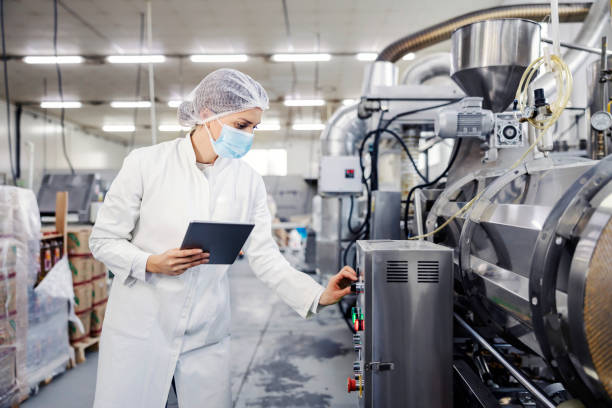
The food production industry, a cornerstone of global sustenance and economy, offers diverse and promising career paths. Let’s explore the opportunities and advancements in this ever-evolving sector.
Agricultural technologists are at the forefront of revolutionizing farming techniques, ensuring sustainable and efficient crop production. This career hinges on the integration of technology with traditional farming practices, resulting in higher yields and reduced environmental impact.
By employing precision agriculture tools, such as GPS mapping and drones, these professionals can monitor crop health, soil conditions, and pest infestations with unprecedented accuracy. Their work also involves the research and development of new plant varieties that are more resistant to diseases and climate change, ensuring food security for the future. Moreover, agricultural technologists play a crucial role in educating farmers about the latest technologies and best practices, bridging the gap between innovation and practical application. The growing demand for food and the push towards sustainable agriculture make this an exciting and impactful career choice, with opportunities to work in various settings, from tech startups to large agribusinesses.
Food scientists are dedicated to understanding the complexities of food composition and ensuring that what we eat is safe, nutritious, and tasty. They conduct critical research on how different processes affect food properties and work on developing new food products that meet consumer demands and regulatory standards. This role often involves working in laboratories, conducting experiments to test for contaminants, nutritional value, and shelf life. Food scientists also collaborate with other experts to improve food processing and packaging technologies, ensuring products maintain their quality from farm to table. With the increasing focus on health and wellness, food scientists are also at the forefront of innovating healthier alternatives and fortifying foods with essential nutrients. The role is vital for the prevention of foodborne illnesses and contributes significantly to public health. Career prospects in this field are vast, spanning across industries such as manufacturing, government, and research institutions.
Supply chain managers are critical to the food production industry, overseeing the journey of food products from production to consumer. Their primary responsibility is to ensure a seamless and efficient flow of goods, which involves managing logistics, coordinating with suppliers, and optimizing processes to reduce costs and time. In an industry where freshness and timely delivery are vital, these professionals use advanced software and technologies to track shipments, manage inventory, and forecast demand. They also play a vital role in crisis management, handling disruptions caused by natural disasters, political unrest, or pandemics, ensuring that food supply chains remain resilient and adaptable. Given the global nature of the food industry, supply chain managers often work with international partners, navigating diverse regulatory environments and cultural differences. Their expertise is crucial in combating food wastage and enhancing sustainability, making this a dynamic and impactful career.
Food marketing specialists develop strategies to promote food products and connect producers with their target consumers. Their work encompasses market research, branding, advertising, and public relations, all aimed at boosting product visibility and appeal. They analyze consumer behavior to understand trends and preferences, allowing them to craft compelling marketing campaigns that resonate with specific demographics. This role often involves a creative aspect, such as designing packaging or developing engaging content for social media platforms. Food marketing specialists also work closely with sales teams to ensure marketing strategies align with business goals and drive revenue growth. In a constantly evolving market, these professionals must stay abreast of new marketing tools and techniques, from digital marketing to influencer collaborations. The increasing importance of sustainability and ethical consumption also requires them to highlight aspects such as organic sourcing, fair trade, and environmental impact in their campaigns. This career is both challenging and rewarding, offering opportunities to shape consumer habits and drive the success of food products.
Food policy analysts play a crucial role in shaping the policies and regulations that govern the food production industry. Their work involves researching and analyzing data on food production, distribution, and consumption to inform policy decisions that promote food security, sustainability, and public health. These professionals often engage with stakeholders across the spectrum, including government agencies, non-profits, industry leaders, and communities, to advocate for policies that address issues such as food safety, nutrition, and environmental impact. They also monitor and evaluate the effectiveness of existing policies, identifying areas for improvement and proposing new initiatives. Food policy analysts must have a deep understanding of the intricate connections between food systems, economic factors, and social dynamics. Their work is critical in addressing global challenges such as hunger, climate change, and health disparities, driving systemic change in the food industry. This career offers the opportunity to make a significant impact on society, contributing to the development of fair and sustainable food systems worldwide.